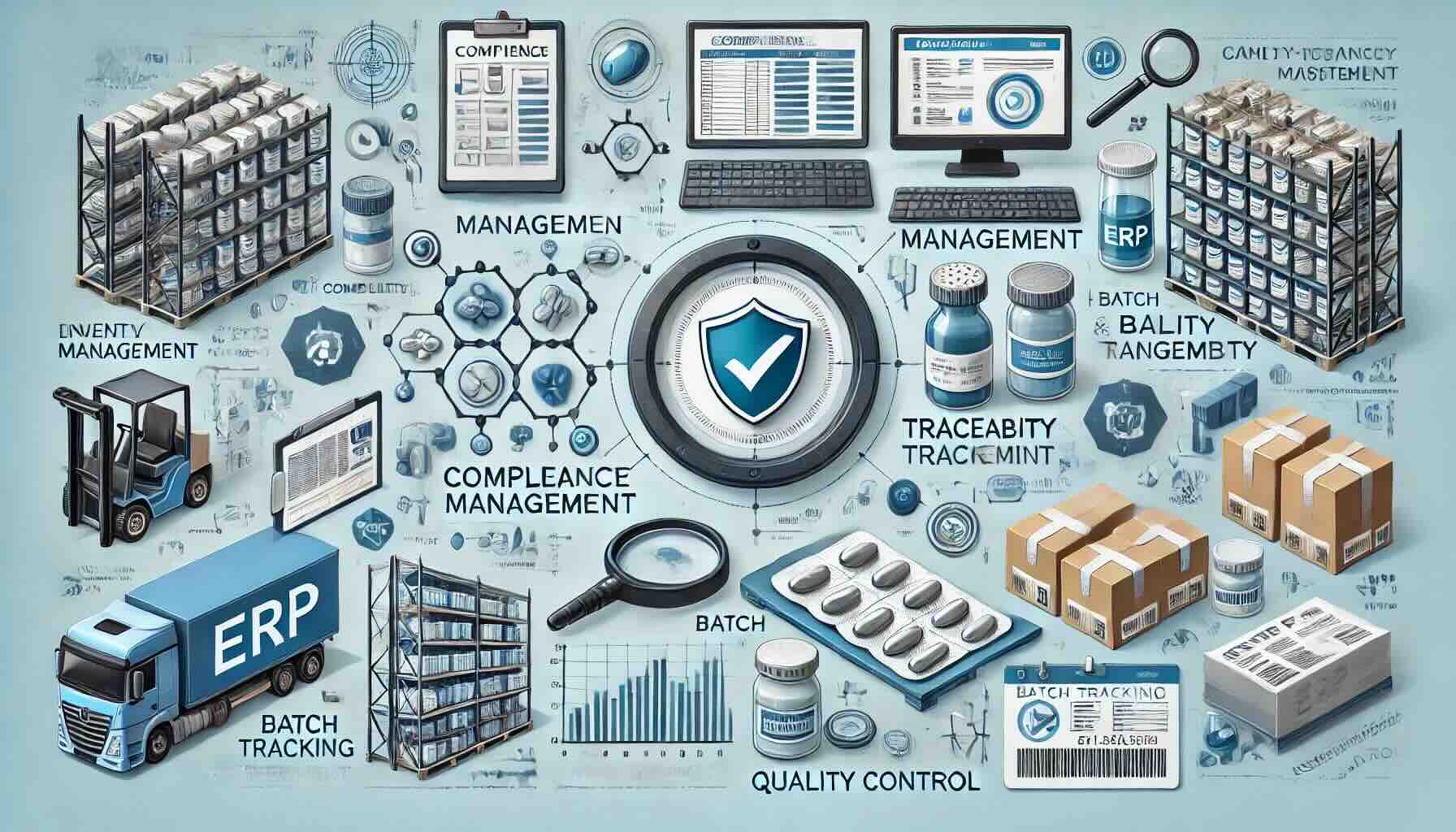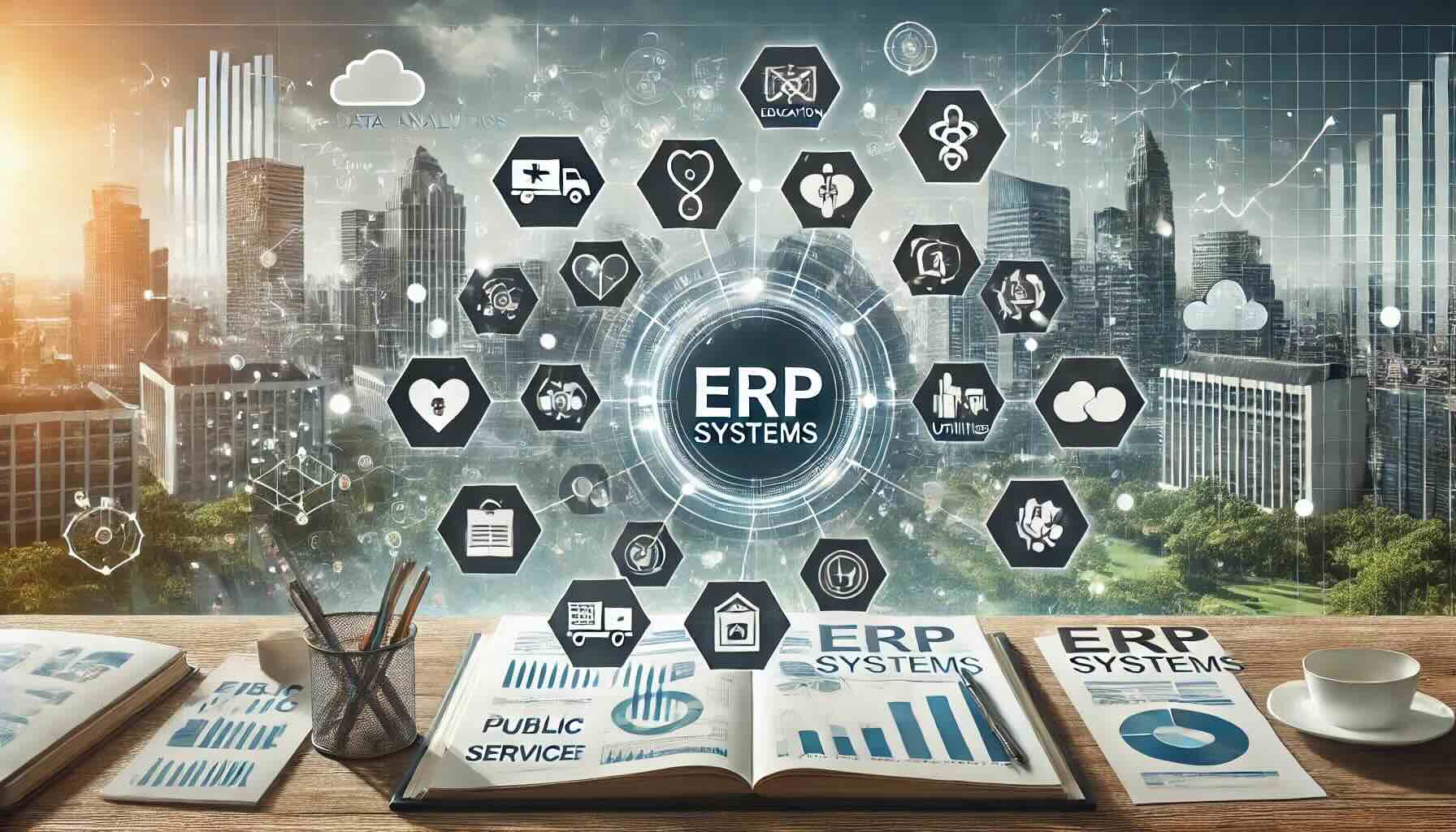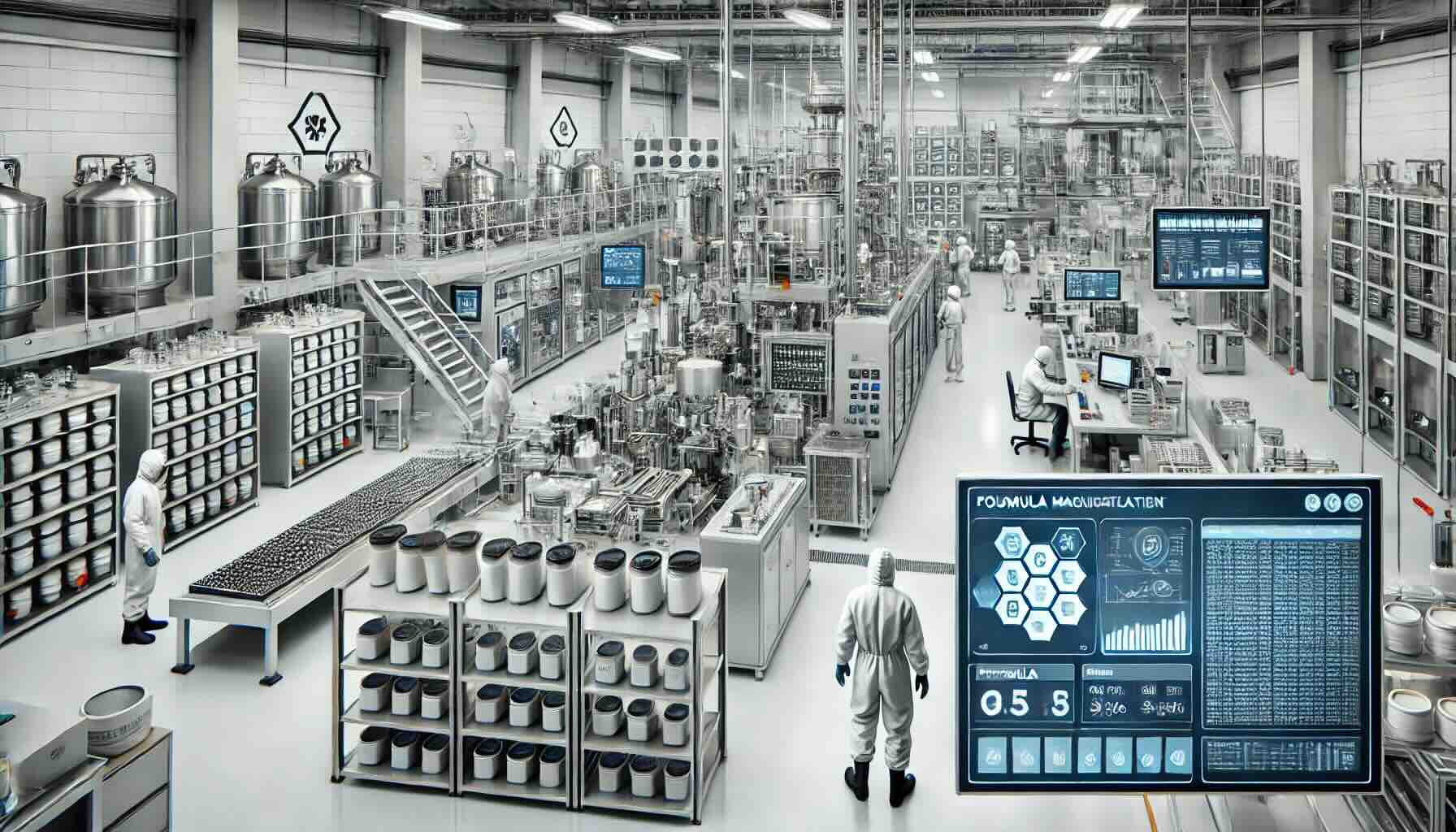Top ERP Solutions for Streamlining Pharmaceutical Distribution

In the highly regulated and competitive world of pharmaceutical distribution, choosing the right Enterprise Resource Planning (ERP) system is crucial for success. An ERP system tailored to the pharmaceutical industry can streamline operations, ensure compliance with regulatory standards, and ultimately drive growth. But with so many options available, how do you determine which ERP is the best for your pharmaceutical distribution business? This guide will help you navigate the key considerations and explore the top ERP solutions that cater specifically to the pharmaceutical distribution sector.
Key Considerations When Choosing an ERP for Pharmaceutical Distribution
Selecting the best ERP for pharmaceutical distribution requires careful consideration of several factors. Below are the essential aspects to evaluate:
1. Regulatory Compliance
Pharmaceutical distribution is subject to strict regulations from entities like the FDA, EMA, and other global regulatory bodies. The ERP system you choose must offer robust compliance features, including validation capabilities, audit trails, electronic signatures, and compliance with GxP standards (Good Manufacturing Practice, Good Distribution Practice, etc.).
2. Traceability and Batch Management
In pharmaceutical distribution, the ability to trace products from manufacturing to the end customer is critical. Your ERP should support full traceability, allowing you to track batch numbers, expiration dates, and other relevant details throughout the supply chain. This ensures not only compliance but also helps in effective recall management if necessary.
3. Inventory Management
Efficient inventory management is vital for maintaining the balance between demand and supply, minimizing stockouts, and reducing excess inventory. Look for an ERP system that offers real-time inventory tracking, automated reordering, and integration with warehouse management systems (WMS).
4. Quality Control
Quality control is a non-negotiable aspect of pharmaceutical distribution. Your ERP should include features for managing quality checks, inspections, and documentation at every stage of the distribution process. This ensures that only products that meet the required standards reach the market.
5. Scalability and Integration
As your business grows, your ERP system should be able to scale with it. Additionally, the ERP should seamlessly integrate with other systems such as Customer Relationship Management (CRM), Warehouse Management Systems (WMS), and eCommerce platforms to ensure a smooth flow of information across all business functions.
6. Cost and Implementation Time
Cost is always a factor, but it should be weighed against the long-term benefits of the system. Also, consider the implementation time and the level of customization required. Some ERP solutions offer faster deployment but may be less flexible, while others provide extensive customization options but take longer to implement.
Top ERP Solutions for Pharmaceutical Distribution
Here are some of the best ERP systems specifically designed or well-suited for pharmaceutical distribution:
1. SAP S/4HANA
SAP S/4HANA is one of the most powerful ERP systems available, offering a comprehensive suite of tools that are particularly beneficial for pharmaceutical distribution. It provides advanced features for compliance management, traceability, and inventory management. Its ability to integrate with SAP’s other solutions, like SAP Integrated Business Planning (IBP), makes it a strong choice for large-scale distributors.
Key Features:
- Real-time analytics and reporting
- Integrated quality management
- Robust batch management and traceability
- Extensive regulatory compliance support
Pros:
- Highly scalable and customizable
- Strong global support and community
- Extensive third-party integration capabilities
Cons:
- High cost of implementation and maintenance
- Complex system that may require extensive training
2. Microsoft Dynamics 365
Microsoft Dynamics 365 is a cloud-based ERP that combines CRM and ERP capabilities into a single platform. It is particularly well-suited for mid-sized pharmaceutical distributors looking for an all-in-one solution that is easy to implement and use.
Key Features:
- Advanced inventory and warehouse management
- Integrated compliance management
- AI-driven insights and predictive analytics
- Seamless integration with Microsoft Office and other Microsoft products
Pros:
- User-friendly interface
- Strong integration with other Microsoft tools
- Flexible deployment options (cloud, on-premises, or hybrid)
Cons:
- May require additional customization for specific pharmaceutical needs
- Licensing can become costly as you add more users and modules
3. NetSuite
NetSuite, a cloud ERP solution by Oracle, is a popular choice for small to mid-sized pharmaceutical distributors. It offers a comprehensive set of features tailored to the needs of the pharmaceutical industry, including compliance management, traceability, and integrated financials.
Key Features:
- Real-time inventory tracking and demand planning
- Built-in compliance and audit capabilities
- Scalable platform with global capabilities
- Customizable workflows and dashboards
Pros:
- Cloud-based, reducing the need for extensive IT infrastructure
- Rapid implementation compared to on-premises systems
- Strong support and continuous updates from Oracle
Cons:
- Limited flexibility in some areas compared to larger ERP systems like SAP
- Pricing may increase significantly as the business scales
4. Infor M3
Infor M3 is a robust ERP system that is particularly strong in industries like pharmaceuticals where compliance and traceability are critical. It offers a wide range of modules that can be tailored to the specific needs of pharmaceutical distributors.
Key Features:
- End-to-end traceability and batch management
- Advanced quality control features
- Strong integration capabilities with other Infor solutions
- Extensive regulatory compliance support
Pros:
- Highly customizable to meet specific industry needs
- Strong focus on supply chain and logistics
- In-depth analytics and reporting tools
Cons:
- Complex implementation process
- Can be expensive for smaller businesses
5. Epicor ERP
Epicor ERP is designed for small to medium-sized enterprises (SMEs) and offers industry-specific solutions, including for the pharmaceutical sector. It is known for its ease of use and flexibility, making it a great choice for growing pharmaceutical distribution companies.
Key Features:
- Comprehensive inventory and supply chain management
- Integrated quality assurance and compliance tools
- Scalable architecture
- Strong financial management capabilities
Pros:
- User-friendly and intuitive interface
- Flexible deployment options
- Cost-effective for SMEs
Cons:
- May lack some of the advanced features found in larger ERP systems
- Limited global support compared to larger vendors
Conclusion
Choosing the best ERP for pharmaceutical distribution depends on your specific business needs, budget, and growth plans. SAP S/4HANA is ideal for large enterprises requiring extensive customization and global support, while Microsoft Dynamics 365 and NetSuite offer strong, user-friendly options for mid-sized businesses. Infor M3 and Epicor ERP are also excellent choices, particularly for companies that need robust compliance and traceability features.
Ultimately, the best ERP system is one that not only meets your current needs but can also scale with your business as it grows. By carefully considering the factors outlined in this guide and evaluating the top ERP solutions available, you can make an informed decision that will support your pharmaceutical distribution business’s long-term success.
To compare these ERP solutions and many more, you can use our new AI-powered Compare ERP tool. It’s free to use and you get a guaranteed discount on your first year’s licence fees with a referral from Compare ERP.









